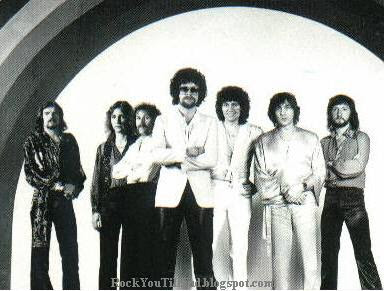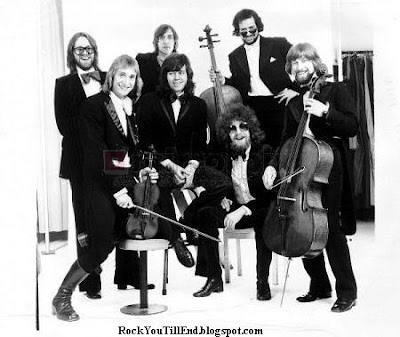Electric Light Orchestra mp3 download
Easy Guitar Tabs Electric Light Orchestra
Group formed in 1970 (some sources say 1971), in Birmingham, England, by active members of the English rock group the Move: Bev Bevan (drums; born November 25, 1946), Jeff Lynne (guitar, synthesizer, and lead vocals; born December 30, 1947, in Birmingham, England), Rick Price (bass), and Roy Wood (guitar and vocals); Price and Wood left band in 1972, were replaced by Michael de Albuquerque (bass), Mike Edwards (cello), Wilf Gibson (violin), Richard Tandy (guitar and keyboards; born March 26, 1948, in Birmingham, England), and Colin Walker (cello); Gibson and Walker left band in 1973, were replaced by Mik Kaminski (violin; born September 2, 1951, in Harrogate, England) and Hugh McDowell (cello; born July 31, 1953, in London, England); de Albuquerque left band in 1974, replaced by Kelly Groucutt (bass and vocals; born September 8, 1945, in Coseley, England); Edwards left band in 1974, replaced by Melvyn Gale (cello; born January 15, 1952, in London); Gale, Kaminski, and McDowell left band in 1977; band formally dissolved, 1986.

Rock Bands -Electric Light Orchestra
The Electric Light Orchestra, whose fusion of rock and classical sounds made it one of the most innovative groups to come out of the 1970s, had its origins in the mod-dadaist group the Move, one of England's more enigmatic and controversial bands of the late 1960s. It is difficult to imagine that such an unusual ensemble as the Move, infamous in Britain for wild stage antics that included smashing television sets and pianos, would give rise to the Electric Light Orchestra (also commonly known by the abbreviation ELO), a seemingly cultured pop orchestra that exerted a significant influence on contemporary music, with the use of strings, synthesizers, and exquisitely layered vocals.
The Move was a band in constant turmoil with personnel changes; some of their personality conflicts led to fistfights. The lack of cohesion showed in the group's music, the bulk of which has been hailed as imaginative by critics. Onstage violence and manic behavior were a creation of the group's manager, though leader Roy Hood was known for his own stage antics, a trait that accompanied him into other projects. During the band's first four years of existence, the Move managed to record only two albums and were the focus of an ongoing legal dispute with the then-prime minister of England, Harold Wilson. Charged with character defamation, the band eventually lost the suit. Though popular with the underground London music scene as a singles band, the Move went unrecognized in the United States until after they had disbanded. Before the group dissolved, however, after a long string of personnel changes had whittled the group down to Hood, drummer Bev Bevan, and newcomer Jeff Lynne, the Move issued their last (and possibly finest) album of new material, Message from the Country, in 1971. Contractual disputes eventually led to the Move's demise, but before the band was finished, the remaining trio recorded what would become ELO's first album, No Answer . A well-received disc, it yielded the English hit single "10538 Overture" and started the band members on a new path.
The Electric Light Orchestra was the brainchild of remaining Move members Lynne, Bevan, and Hood, who is credited with conceiving the idea of a fully electric rock band augmented by a classical string section. Where the Move had been a wild ensemble of clashing talents, ELO was formed as a more traditional pop orchestra. No Answer, released in 1972 and featuring soloists from the London Symphony Orchestra, failed to please members of the band. To complicate matters, their early tours were depressing, tense events affected by Hood's bizarre stage antics. Following a tour of England, leader Hood parted company with ELO to form the rock and roll band Wizzard. He also recorded, produced, and engineered a solo album as well as a 1950s tribute album, Eddy and the Falcons (with the members of Wizzard). His subsequent solo albums never matched the success of ELO, which was taken over by Lynne.

Electric Light Orchestra Band
As main songwriter and lead vocalist, Lynne became central to the group's sound and eventual success. He had been critical of music from a young age, rebelling against his father's love of classical music and participating in school choir only to get out of lessons. He changed his mind when he borrowed a plastic guitar with only one string from a friend. Knowing nothing about chords, he was quite pleased with the instrument. When his father later bought him a Spanish guitar, he was delighted.
A school dropout, Lynne soon found himself fired from his first job and bounced from one job to another almost as frequently as he changed musical groups--for it seemed everyone in the 1960s was involved with a band, and he was no different. In 1970 he left the Idle Race (with whom he had recorded one album, The Birthday Party ), joined the Move, and as the Move disintegrated and ELO prospered, the stage was set for Lynne's unique talents as a composer, lyricist, producer, and musician.
Following another round of personnel changes ELO debuted at the Reading Festival. Later additions to the group included Melvyn Gale (cello), Hugh MacDowell (cello), Bev Bevan (percussion), Rich Tandy (keyboards), Kelly Groucutt (bass and vocals), Mik Kaminski (violin), and Steve Woolam (violin and vocals).
Early success for ELO came as they opened for artists including Edgar Winter and B. B. King. In the United States they found a far more receptive audience than in Britain; Americans, it seemed, were ready for the new sound ELO was developing. ELO II, released in 1973, put the group in the spotlight as one of the new progressive classical-rock bands of the decade. The single "Roll over Beethoven," which featured a surprising contrapuntal slice of Beethoven's Fifth Symphony, placed at the top of English charts for several weeks, going on to become the band's first American hit. During the same year the group completed its first American tour and released a second album, On the Third Day.

Electric Light Orchestra Band
In 1974 "Can't Get It out of My Head," from Eldorado, provided the group with their first major American hit, and the album was certified gold in 1975. Throughout the decade and in the 1980s ELO had a number of top-selling singles, including Lynne's side-long "Concerto for a Rainy Day" on Eldorado and such pop hits as "Strange Magic" and "Evil Woman" from Face the Music; "Telephone Line" from their first platinum album, A New World Record; "Don't Bring Me Down" from Discovery; "Xanadu" with Olivia Newton-John from the soundtrack of the same name; and "Hold on Tight" and "Twilight" from Time . Despite such successful singles, they remain best known for their albums and live performances.
The 1978 ELO stage show featured laser beams ricocheting off a mirrored ball hung from an ascending hot-air balloon and incorporated a five-ton, sixty-foot-wide fiberglass structure resembling a spaceship--the perfect prop to accompany the Out of the Blue album. During this time period the band's worst critic, perhaps, was its own leader. According to a 1978 People article, Lynne was "uncommonly modest for a rock star" and brutally honest in his critique of ELO's work. He called their first album "a self-indulgent nonevent," the second "pretentious," and even the eighth, Out of the Blue, merely "artistically honest pop music."
Moving to Columbia Records in 1979, ELO recorded Discovery, a landmark album featuring a forty-two-piece orchestra and thirty-voice male choir. It was soon hailed as an attempt to expand the marriage of rock and classical music and yielded two hits in "Shine a Little Love" and "Don't Bring Me Down." In the face of growing success, the band's reputation remained surprisingly good. Nevertheless, some critics viewed the band as being too pompous--particularly for the spectacle they put on during half of their 1978 concerts with the rising spaceship stage. That and other grandiose props gave ELO a certain anonymity as individuals that did not seem to overly concern them.
 Electric Light Orchestra
Electric Light OrchestraFollowing the recording of Discovery the group participated in the 1980 film soundtrack Xanadu, which produced major hits with "I'm Alive," "All Over the World," and a smash hit with the title song sung by Olivia Newton-John. In 1981 the concept album Time received vastly mixed reviews. At once an impressive and creative look back on history in pop-music form, it was faulted for sounding too contemporary by some critics. Other reviewers felt the album had an impressive overall consistency, engaging in its futuristic impersonation.
The band's last album of new material, 1986's Balance of Power, was well received, compliments going to Lynne for tinkering with songs to enhance them and for his layering of vocals into a chorus. After the band dissolved Lynne scored success as a songwriter and record producer for others, including former Beatles George Harrison, and as a performer with the Traveling Wilburys, which also featured rock greats Harrison, Bob Dylan, Tom Petty, and the late Roy Orbison.
Electric Light Orchestra mp3 download
Easy Guitar Tabs Electric Light Orchestra



No comments:
Post a Comment